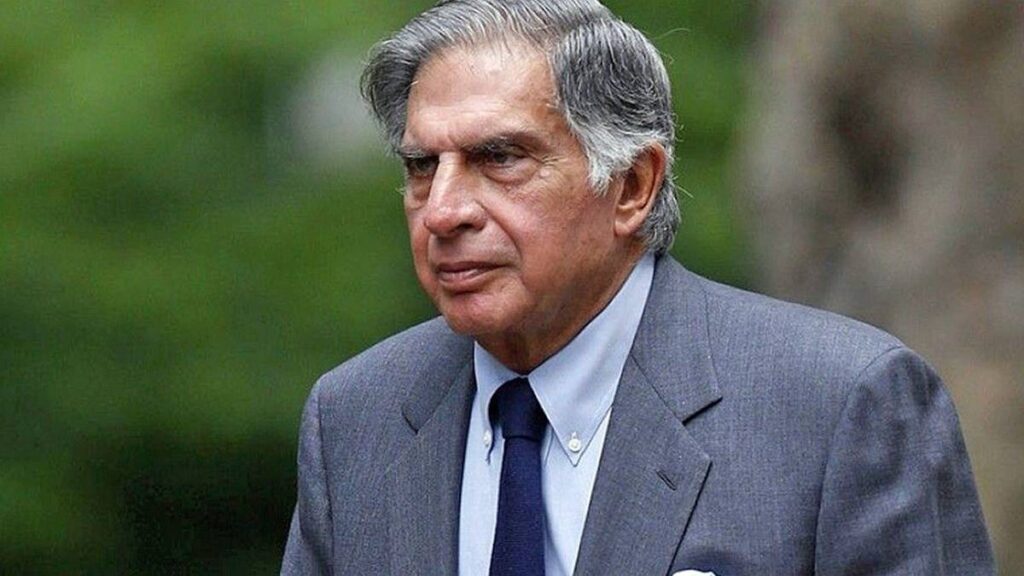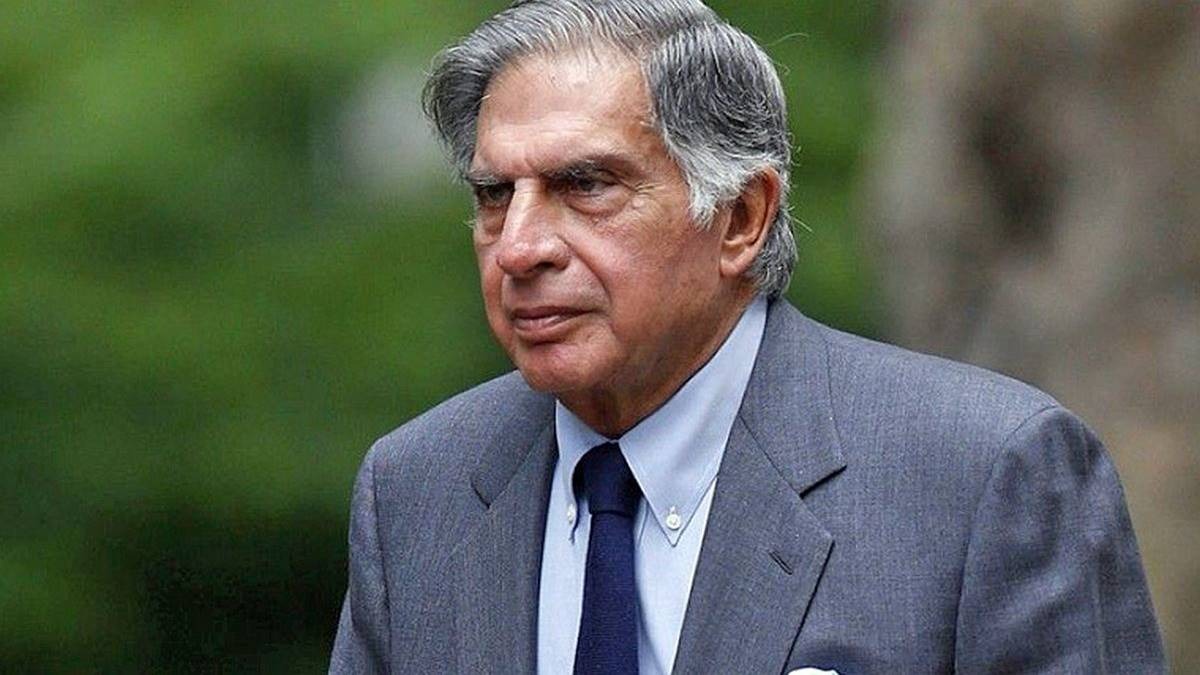
Ratan Tata, the revered industrialist and former chairman of Tata Sons, passed away at the age of 86, leaving behind a remarkable legacy that has shaped not only the Tata Group but also the very fabric of Indian industry and society. His journey from a young man in a family business to an icon of Indian entrepreneurship is a testament to his vision, resilience, and commitment to social responsibility.
Early Life and Education
Born on December 28, 1937, in Surat, Gujarat, Ratan Tata was the son of Naval Tata and Sooni Tata. He was raised in a family with a rich history in business; the Tata Group was founded by his great-grandfather, Jamsetji Tata, in the late 19th century. Ratan Tata’s early education took place at the Campion School in Mumbai and later at the Cathedral and John Connon School. He pursued his undergraduate degree in Architecture at Cornell University and earned an Advanced Management Program degree from Harvard Business School.
Ratan Tata joined the Tata Group in 1961, starting his career as a management trainee at Tata Steel. His hands-on approach and keen insights allowed him to understand the inner workings of the conglomerate, laying the foundation for his future leadership.
Transforming the Tata Group
In 1991, Ratan Tata took over as the chairman of Tata Sons, the holding company of the Tata Group. His tenure marked a significant transformation within the group, which faced considerable challenges during the liberalization of the Indian economy. Under his leadership, the Tata Group diversified into various sectors, including IT, telecommunications, and automobiles, reinforcing its position as a global player.
One of the most notable achievements during his tenure was the launch of the Tata Nano in 2008. Marketed as the world’s cheapest car, the Nano aimed to provide an affordable vehicle for India’s burgeoning middle class. Although the project faced several challenges, it showcased Ratan Tata’s commitment to innovation and inclusivity.
Another milestone was the acquisition of Corus, a UK-based steel company, in 2007. This move not only expanded Tata Steel’s global footprint but also positioned the Tata Group as one of the largest steel producers in the world.
A Commitment to Philanthropy
Ratan Tata’s contributions extend beyond business; he was a passionate advocate for social responsibility and philanthropy. He believed that businesses should not only focus on profit but also play a pivotal role in the development of society. Under his guidance, the Tata Group significantly increased its philanthropic initiatives, directing resources toward education, healthcare, and rural development.
The Tata Trusts, which control a majority of Tata Group’s shares, have been instrumental in various social projects. Ratan Tata emphasized the importance of giving back to society, often stating that the true measure of success lies in the impact one has on the lives of others.
Leadership Style and Values
Ratan Tata’s leadership style was characterized by humility, integrity, and a strong ethical foundation. He was known for his approachable demeanor, valuing open communication and collaboration. His ability to inspire and motivate employees created a culture of trust and innovation within the organization.
Throughout his career, Ratan Tata maintained a commitment to ethical business practices. He firmly believed that businesses should operate with transparency and accountability, setting a benchmark for corporate governance in India.
Legacy and Recognition
Ratan Tata’s contributions to Indian industry have earned him numerous accolades and awards, both nationally and internationally. He received the Padma Bhushan in 2000 and the Padma Vibhushan in 2008, two of India’s highest civilian honors. He was also recognized by various global organizations for his leadership and commitment to sustainable business practices.
His legacy is evident not only in the growth of the Tata Group but also in the lives he touched through his philanthropic efforts. Many initiatives launched under his stewardship continue to benefit society, including educational institutions, healthcare facilities, and rural development programs.
Final Years and Impact
In his later years, Ratan Tata remained active in various philanthropic and entrepreneurial ventures. He took on the role of mentor and advisor to several startups, encouraging innovation and fostering a spirit of entrepreneurship among young Indians. His vision for a better future continued to inspire many, as he championed the use of technology for social good.
Ratan Tata’s death marks the end of an era for the Tata Group and the Indian business landscape. His visionary leadership, unwavering commitment to ethical practices, and dedication to philanthropy have left an indelible mark on the nation. He will be remembered not just as a successful businessman but as a true national icon whose contributions transcended commerce and reached into the hearts of millions.
Conclusion
Ratan Tata’s life and legacy serve as a powerful reminder of the impact one individual can have on society. His journey from a young trainee to the helm of one of India’s largest conglomerates is a story of perseverance, vision, and altruism. As the nation mourns the loss of a great leader, it also celebrates the values he embodied and the path he paved for future generations.
In the words of Ratan Tata himself, “I don’t believe in taking right decisions. I take decisions and then make them right.” This philosophy encapsulates his approach to leadership and life, inspiring countless individuals to pursue their dreams with determination and integrity. As we reflect on his remarkable contributions, we are reminded of the enduring impact of Ratan Tata, a true giant of Indian industry and a beacon of hope for a better tomorrow.
